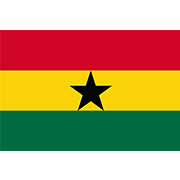Fiscal subject related
- Reducing the VAT rate applicable to commercial properties from 15% to 5%;
- Introducing a flat rate tax of 5% on the rental of commercial properties other than commercial rental establishments and the supply of immovable property by an estate developer;
- Extending the zero rate of locally manufactured textiles and vehicles to December 31, 2025;
- Introducing the zero-rate of locally manufactured sanitary towels;
- Waiving tax on electric vehicles for public transportation (such as buses);
Additionally, the Ministry of Finance has suspended the implementation of 15% VAT on residential electricity consumption when such consumption is above the maximum consumption level specified for block charges for lifeline units as of January 1, 2024. The suspension takes effect pending further engagements with key stakeholders (without a specific deadline so far).
The first schedule of the VAT Act 2013 (Act 870) exempts a supply of dwelling electricity up to the maximum consumption level specified for block charges of lifeline units from VAT. This means that any supply of electricity above the maximum level would generally not be exempt from VAT.
Other news from Ghana
How to record returns inside the Ghana fiscalization system?
 Ghana
Author: Tara Nedeljković
Ghana
Author: Tara Nedeljković
These return documents are generated through certified invoicing systems, include all key details (like receipt numbers and QR codes), and ensure compliance with Ghana Revenue Authority (GRA) rules. The system supports both online and offline modes, allowing provisional QR code issuance during outages, with automatic tax calculation and real-time updates to the GRA. In Ghana, handling retu... Read more



TLv6 Implementation Marks Significant Shift in EU’s Trust List Format
A new EU Trust List format, TLv6, will officially replace TLv5 in May 2025 as part of the updated eIDAS Regulation (EU 2024/1183). It introduces key technical changes like a new URI field, updated signature format, and optional phone number support. Organizations must update their systems to avoid signature validation failures and service disruptions, as TLv5 will no longer be valid once TLv6 take... Read more



New document was uploaded: Recorded webinar: E-invoicing for Global Retailers
If you are struggling with complex e-invoicing implementations across multiple countries, and if you are concerned about mounting costs, potential delays, or compliance risks, our webinar will help you to learn how global retailers can streamline e-invoicing efficiently! With countries worldwide mandating e-invoicing, international retailers face unique challenges adapting to new regulations acros... Read more



Checking receipt validity inside E-VAT system in Ghana
 Ghana
Author: Tara Nedeljkovic
Ghana
Author: Tara Nedeljkovic
In Ghana, customers can verify the authenticity of an E-VAT invoice or receipt on their own. Below is a detailed explanation of this process. Every valid E-VAT receipt must contain a readable QR code. The Ghana Revenue Authority (GRA) mandates this as part of this tax document to ensure its verifiability. The QR code contains important information such as the taxpayer's TIN (Taxpayer Identificatio... Read more



Is the offline regime of work from a retail store in Ghana possible, and if so, how?
 Ghana
Author: Tara Nedeljković
Ghana
Author: Tara Nedeljković
Based on the current requirements, retailers can request to operate in an offline mode with the intervention of the Ghana Revenue Authority (GRA) but only under specific conditions that were defined by the GRA. Read more



Ghana's E-VAT Status: GRA exceeds a preset target
 Ghana
Author: Tara Nedeljkovic
Ghana
Author: Tara Nedeljkovic
The Ghana Revenue Authority (GRA) has announced that it has exceeded its target of signing on 600 large companies on its Electronic (E)-VAT platform by over 40 companies. In May 2024, the GRA stated the aim to bring onboard over 600 large companies onto its E-VAT system by June of the same year to enhance revenue collection and monitoring. Speaking at one of the meetings, the Board Chair of GRA,... Read more



The GRAs’ informative statement regarding the implementation of the E-VAT system in Ghana
 Ghana
Author: Kristina Dosen
Ghana
Author: Kristina Dosen
The Ghana Revenue Authority (GRA) is in the process of rolling out an electronic VAT invoicing system that will assist businesses and the authority in obtaining real-time monitoring of VAT transactions. More on deadlines and some specifics are as follows. No later than June 2024, six hundred (600) VAT-registered taxpayers will be onboarded into the system to issue electronic VAT invoices based on... Read more


